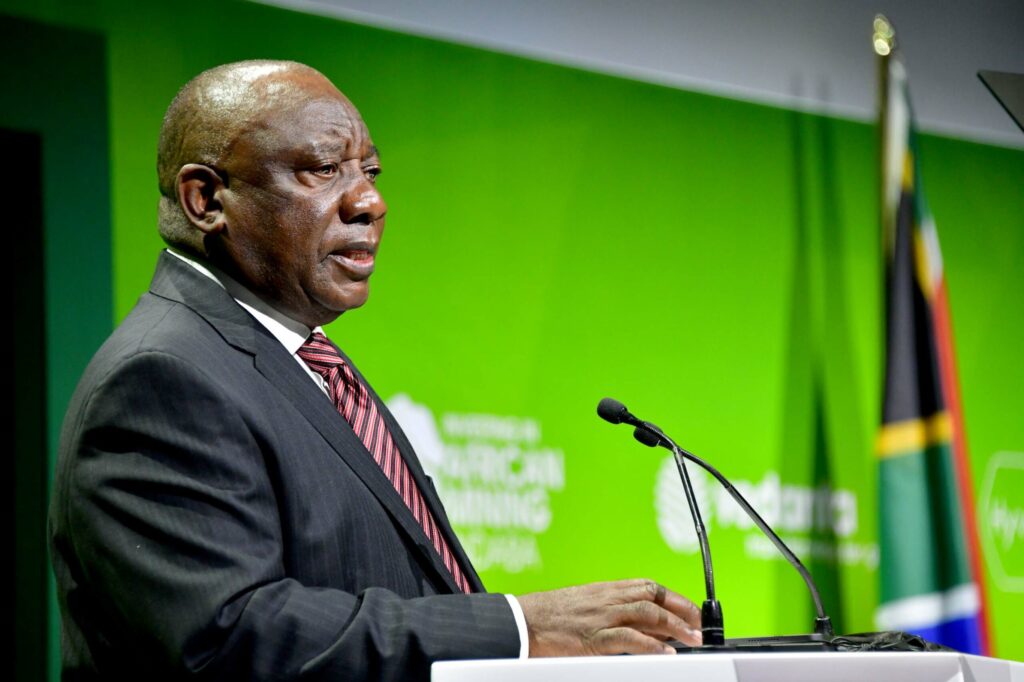The controversy surrounding oil exploration in South Africa has escalated as Johnny Copelyn, accused President Cyril Ramaphosa of being “evasive” about his government’s position on the matter in his capacity as Hosken Consolidated Investments (HCI) subsidiary, Impact Oil and Gas (IOG) Chairman. The contentious issue has drawn the attention of environmentalists, who are deeply concerned about the potential ecological impact of oil exploration in the country.
President Ramaphosa’s Evasive Stance
Johnny Copelyn, a prominent figure in the oil and gas industry, voiced his frustration with President Ramaphosa’s perceived lack of clarity regarding the government’s stance on oil exploration. In a recent public statement, Copelyn criticised the president for not providing a definitive position on the matter, adding that the lack of transparency has created uncertainty for the industry.
“There is substantial litigation opposing such exploration work. The president … has been particularly evasive as to whether he supports such work or not and it is unclear whether this will completely inhibit SA developing its own oil resources despite the obvious prospectivity of the blocks concerned,” writes Copelyn in a letter to shareholders, published in the group’s annual report.
“Such inhibition will of course oblige the country to continue to import its requirements at close to double the cost per barrel to the country. We say this because total taxes on such oil production are about half the cost of the product.”
The chairman’s remarks come amid increasing pressure from environmentalists and civil society groups urging the government to prioritise sustainable and environmentally friendly energy alternatives, rather than relying on fossil fuel exploration.
Environmental Concerns and Opposition
Oil exploration, a controversial activity worldwide, has come under scrutiny in South Africa due to concerns over its potential impact on fragile ecosystems, marine life, and climate change. Environmentalists argue that drilling for oil could lead to oil spills, habitat destruction, and air and water pollution, posing significant threats to biodiversity and the livelihoods of coastal communities.
The contentious issue has prompted widespread protests and opposition from various environmental organisations and activists, who are calling for more stringent regulations and a transition to renewable energy sources.
Government’s Response
In response to the accusations of evasiveness, the South African government has reiterated its commitment to a comprehensive energy policy that addresses both the country’s energy needs and environmental concerns. The president in 2022 told the Africa Mining Indaba that SA must be given space to extract oil and gas.
According to Business Day, Presidential spokesperson Vincent Magwenya dismissed Copelyn’s accusation as unconstructive, unsubstantiated and a bid to get media headlines.
“As we speak, the president is chairing another follow-up meeting with business, which demonstrates the deepening commitment for collaboration between government and business as well as other social partners. It is not for the president to promote individual companies. That is not his job as outlined by the constitution,” Magwenya said.
“If there is a regulatory issue that is impeding sector progress, there are channels available for the resolution of any such regulatory impediments that may exist. Shouting at the president is simply unhelpful.”
IOG was awarded a technical co-operation permit in 2016 by the Petroleum Agency SA over the Orange Basin Deep block. Multinational energy giant TotalEnergies joined as operating partner in September 2017. The project however has been hampered by litigation inhibiting the development of local resources that will occupy all parties involved for the coming year and more.
In September the Eastern Cape high court set aside a 2014 decision by the mineral resources & energy minister to grant oil and gas exploration rights in the Transkei and Algoa exploration areas.
President Ramaphosa’s administration has stressed the importance of balancing economic development and energy security with environmental sustainability, acknowledging the need for a just and equitable energy transition.
